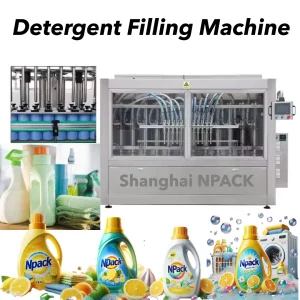About detergent
In this era when every household has a washing machine, detergents have become a must-have washing product for every household, and the production of detergents has become a popular industry now. Detergent is a sunrise industry with no off-season and no worries about sales. Detergents are developing in a straight line and on a large scale, with unlimited market prospects. Therefore, the market demand for bottled detergents is still huge. You can embark on a smooth road to wealth by choosing the right industry and the right company.
The cost of the detergent market is extremely low, and it is ultimately selling water to make money. The cost is only a few dollars per pound, and the decontamination effect is the same as big brand detergents. You can invest in your factory to produce barreled detergents or bulk detergents. Bulk and barreled detergents have a vast market in rural areas, towns and cities. Now, all families are no longer dependent on powdered detergents. In the next few years, liquid detergents will occupy the entire detergent market and gradually replace powdered detergents. The global daily chemical detergent market is an entirely open market. In addition, the detergent industry has a low entry threshold. Many small companies enter the market annually and must adopt a low-price competition strategy, which has considerable profits and attracts many investors.
Detergent production process
Since it is an investment to set up a factory, of course you need to buy equipment. Before buying the equipment, you should first understand the production formula of detergent. The primary raw detergent materials are AES, sulfonic acid, sodium hydroxide, cellulose, trimer, brightener, flavor, pigment, sodium chloride and other raw materials.
Production process: Weigh the main raw materials according to their proportion and pour them into the mixing bucket. Slowly blend them, add an appropriate amount of water, and pour them into the equipment together. Set the time, turn on the heating start, set the temperature, and start the emulsification. After the time is up, the machine stops discharging. Since the equipment is an emulsifier, the name suggests that the products are all milky white fine bubbles, which will become finished products after clarification.
Detergent production equipment
A complete set of detergent production equipment includes the following parts:
- Special water treatment equipment
- Reactor (including emulsification and stirring functions)
- Detergent filling machine
- Capping machine
- Special code printer
- Carton sealing machine
The above are essential configuration equipment. The following is a detailed introduction to the functions and uses of each equipment:
Water treatment equipment
Using pure water equipment dedicated to the chemical industry, the conductivity of the pure water produced is in the range of 0.1uS/cm-20uS/cm. The process flow is raw water-raw water pressure pump-multi-media filter-activated carbon filter-softener precision filter-first-stage reverse osmosis machine-intermediate water tank-intermediate water pump-secondary reverse osmosis-EDI system microporous filter-water point. Widely used in production water for detergent, glass water, antifreeze, car washing liquid, etc.
Reactor
This equipment is a chemical reaction container. The structural design and parameter configuration of the container realize the heating, evaporation, cooling, and low-speed mixing functions required by the process. The stirring device inside rotates at high speed, and the material reacts fully in the tank to achieve the effect of emulsification and full mixing. It is widely used in the mixing of raw materials such as detergent, shampoo, etc.
Detergent filling machine
Manual filling is not accurate enough and inefficient, so a filling machine is required. The piston-type quantitative filling machine can fill different high-viscosity fluids accurately, with simple operation, easy maintenance, and no dripping during filling. The filling head can be freely selected, with 2 heads, 4 heads, 6 heads, etc.
The NPACK NP-VF piston Liquid Detergent Filling Machine is designed to specifically cater to the high demands of the detergent chemical industry. This machine focuses on precision and efficiency, allowing it to manage various liquid detergents with different viscosities and properties efficiently. The dosing range is from 500ml to 5000ml, allowing for versatility in meeting diverse packaging needs for various product categories. Some filled products typically foam or contain caustic chemicals that can present challenges during filling. The NPACK NP-VF filler addresses these issues with advanced engineering solutions. It minimizes foam creation and ensures accurate dosage, improving overall operational efficiency. In addition to its functional advantages, this machine boasts a compact and practical design that maximizes space utilization and enhances user accessibility. The intuitive interface allows operators to quickly adjust settings for different filling operations without extensive training or technical expertise.
Furthermore, NPACK has established itself as a prominent manufacturer and exporter of liquid filling technology, mainly focusing on machines tailored for handling foamy and potentially corrosive substances like laundry liquid detergents. With years of experience developing daily chemical liquid filling machines, NPACK understands the complexities of effectively packaging such products. To enhance performance even more, we suggest that detergent producers consider using piston fillers to dispense their liquid detergents. Piston fillers are recognized for their precise and dependable liquid dispensing abilities, maintaining consistency over time and adapting to changes in product composition. Manufacturers can increase productivity levels and uphold quality standards crucial for consumer satisfaction by integrating this technology into their production processes.
Capping machine
It is specially used to tighten or loosen various bottle caps. There are handheld electric capping machines and fully automatic capping machines. They are widely used in various cosmetics, pharmaceuticals, veterinary drugs, pesticides, lubricating oil industries, daily chemicals, etc. bottle capping machine equipment.
Coding machine
There is handheld and fully automatic equipment. Sticking the user’s brand, personal information, and detailed introduction of the product on the periphery of the plastic detergent bottle can mainly help customers occupy the market.
Carton sealing machine
The finished detergent is packed into cartons according to specifications, sealed with tape, and put on the market. Of course, heat shrink machines can also be used, and manufacturers can choose themselves.
